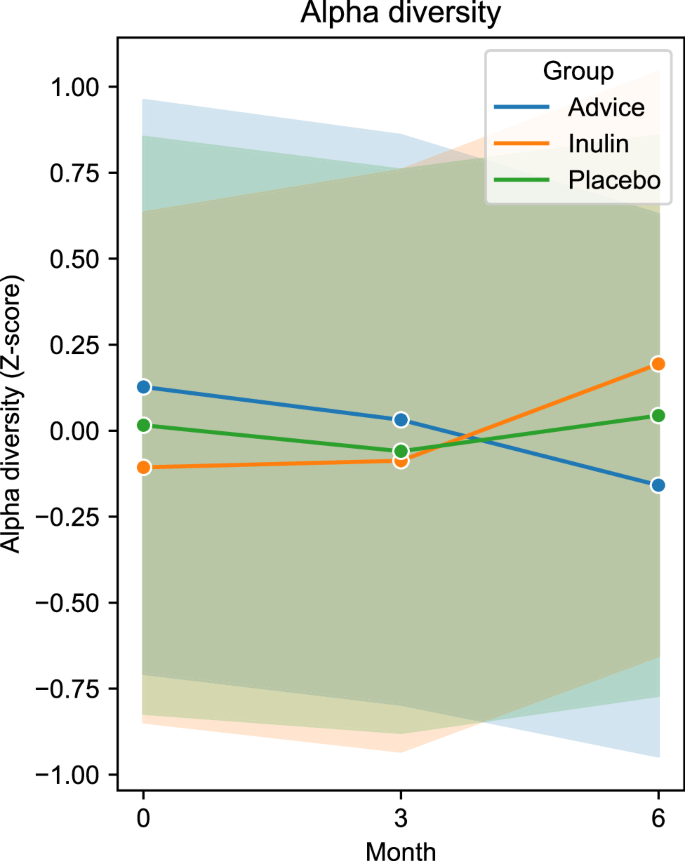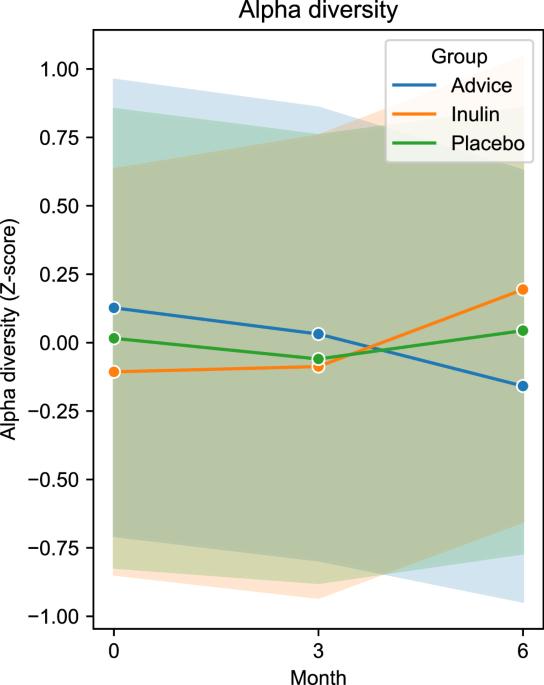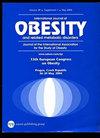Enhancing gut microbiota and microbial function with inulin supplementation in children with obesity
IF 4.2
2区 医学
Q1 ENDOCRINOLOGY & METABOLISM
引用次数: 0
Abstract
Gut dysbiosis that resulted from the alteration between host-microbe interaction might worsen obesity-induced systemic inflammation. Gut microbiota manipulation by supplementation of prebiotic inulin may reverse metabolic abnormalities and improve obesity. This study aimed to determine whether inulin supplementation improved intestinal microbiota and microbial functional pathways in children with obesity. Children with obesity whose BMI above median + 2SDs were recruited to a randomized, double-blinded placebo-controlled study. The participants aged 7–15 years were assigned to inulin supplement extracted from Thai Jerusalem artichoke (intervention), maltodextrin (placebo), and dietary fiber advice groups. All participants received similar monthly conventional advice and follow-up for 6 months. Fecal samples were collected for gut microbiome analysis using 16S rRNA sequencing. Phylogenetic Investigation of Communities by Reconstruction of Unobserved States was performed to infer microbial functional pathways. One hundred and forty-three children with available taxonomic and functional pathway abundance profiles were evaluated. A significant increase in alpha-diversity was observed in the inulin group. Inulin supplementation substantially enhanced Bifidobacterium, Blautia, Megasphaera, and several butyrate-producing bacteria, including Agathobacter, Eubacterium coprostanoligenes, and Subdoligranulum, compared to the other groups. The inulin group showed a significant difference in functional pathways of proteasome and riboflavin metabolism. These changes correlated with clinical and metabolic outcomes exclusively in the inulin group. Inulin supplementation significantly promoted gut bacterial diversity and improved gut microbiota dysbiosis in children with obesity. The modulation of functional pathways by inulin suggests its potential to establish beneficial interactions between the gut microbiota and host physiology. Inulin supplementation could be a strategic treatment to restore the balance of intestinal microbiota and regulate their functions in childhood obesity.


通过补充菊粉增强肥胖症儿童的肠道微生物群和微生物功能。
背景和目的:宿主与微生物之间相互作用的改变导致的肠道菌群失调可能会加重肥胖引起的全身炎症。通过补充益生菌菊粉来调节肠道微生物群可能会逆转代谢异常并改善肥胖。本研究旨在确定补充菊粉是否能改善肥胖症儿童的肠道微生物群和微生物功能途径:方法:一项随机、双盲安慰剂对照研究招募了体重指数超过中位数 + 2SD 的肥胖症儿童。7-15 岁的参与者被分配到从泰国耶路撒冷洋蓟中提取的菊粉补充剂(干预组)、麦芽糊精(安慰剂)和膳食纤维建议组。所有参与者每月都会接受类似的常规建议和为期 6 个月的随访。收集的粪便样本通过 16S rRNA 测序进行肠道微生物组分析。通过重建未观察到的状态对群落进行系统发育调查,以推断微生物功能途径:结果:研究人员对 143 名儿童的分类和功能途径丰度进行了评估。菊粉组的α-多样性明显增加。与其他组相比,菊粉补充剂大大提高了双歧杆菌、布劳氏菌、Megasphaera 和几种丁酸生产菌,包括 Agathobacter、Eubacterium coprostanoligenes 和 Subdoligranulum。菊粉组在蛋白酶体和核黄素代谢的功能途径上表现出显著差异。这些变化只与菊粉组的临床和代谢结果相关:结论:补充菊粉能明显促进肠道细菌多样性,改善肥胖症儿童肠道微生物群失调状况。菊粉对功能途径的调节表明,菊粉具有在肠道微生物群和宿主生理之间建立有益互动的潜力。在儿童肥胖症患者中补充菊粉可作为恢复肠道微生物群平衡和调节其功能的一种战略性治疗方法。
本文章由计算机程序翻译,如有差异,请以英文原文为准。
求助全文
约1分钟内获得全文
求助全文
来源期刊

International Journal of Obesity
医学-内分泌学与代谢
CiteScore
10.00
自引率
2.00%
发文量
221
审稿时长
3 months
期刊介绍:
The International Journal of Obesity is a multi-disciplinary forum for research describing basic, clinical and applied studies in biochemistry, physiology, genetics and nutrition, molecular, metabolic, psychological and epidemiological aspects of obesity and related disorders.
We publish a range of content types including original research articles, technical reports, reviews, correspondence and brief communications that elaborate on significant advances in the field and cover topical issues.
 求助内容:
求助内容: 应助结果提醒方式:
应助结果提醒方式:


